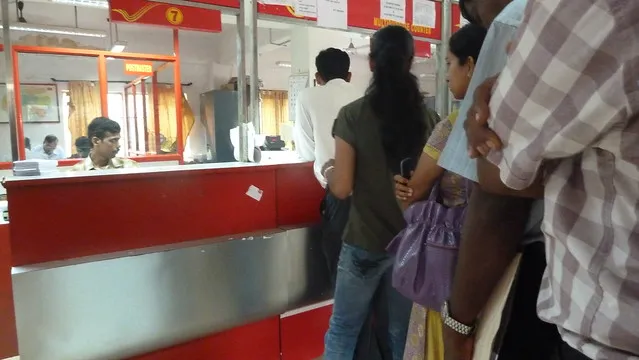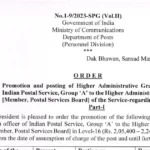Key Highlights
- 1 Introduction to Post Office Savings Schemes
- 2 Why Choose Post Office Savings Schemes?
- 3 Key Post Office Savings Schemes Offering up to 8.2% Interest
- 4 Interest Rates Overview for Post Office Savings Schemes
- 5 Tips to Maximize Returns
- 6 How Post Office Schemes Compare to Bank Fixed Deposits
- 7 FAQs On Post Office Savings Schemes
Introduction to Post Office Savings Schemes
The latest revision in interest rates of select Post Office Saving Schemes to 8.2% owes its attraction to all interested parties across the country. These schemes are suitable for investors who do not wish to take risks but are looking for government-backed stable investments. Let us delve into the specifics, learn how these schemes can work for you, and give the reasons as to why these will be a good inclusion in your financial portfolio.
Why Choose Post Office Savings Schemes?
In addition to the safety that additional government schemes provide, post office savings schemes do take the edge. They are very simple and easy to use and are really very attractive, especially to the risk conservative investor who is looking for some returns.
Safety and Security
There are post office savings schemes benefits of government assured investments. Therefore funds invested would be safe from any risks related to the markets and hence investors can be at peace.
Government-Backed Investment
Post office schemes are absolutely government of India guaranteed, resulting in full safety of both the principal and the interest earnings. Interest rates offered by the government are reviewed on a quarterly basis to ensure that they remain attractive relative to returns from other fixed investments.
Key Post Office Savings Schemes Offering up to 8.2% Interest
A multitude of Post Office Savings Plans are planned for different purposes. Be it earning an income every month or saving for the future, such plans are available. Here are the main ones which provide good returns.
Recurring Deposit Account
The Post Office Recurring Deposit (RD) scheme is limited to those who can keep strict discipline in savings. It comes with a lock-in period of five years and a fair interest rate enabling the user to develop a saving culture making it suitable for anyone wishing to save a certain amount every month without fail. Calculate Post Office RD Scheme Within a Minute
Latest News
Time Deposit Account
Time Deposits (TD) are quite relaxed as you can choose the period to be one two three or five years. The longer the period the higher the interest, with the currently five years TD’s being the most attractive for those seeking to invest for a short to medium, returns are quite high. Calculate TD Investment Now
Senior Citizens Savings Scheme (SCSS)
Particularly this scheme is designed for pensioners who wish to have their money invested in a safe place and receive good capital as well as regular income at intervals. SCSS today offers not less than 8.2% interest making it one of those high returns investment options for retirees who desire to ensure their wellbeing. Use Post Office Savings Scheme Calculator to calculate SCSS within a second.
Monthly Income Scheme (MIS)
For the regular monthly income earners, the Monthly Income Scheme is the most suited. It provides uniform return every month which has an interest rate that is comparable to other income generating schemes.
Know more, Post Office Monthly Income Scheme and the calculation in Details
National Savings Certificate (NSC)
The National Savings Certificate (NSC) is a fixed rate guaranteed return investment. It also comes with tax benefits for its investors. The scheme has a five-year lock-in period, which makes NSC ideal for those investors who are looking for guaranteed returns along with tax benefits as provided under Section 80C. The interest rate for NSC is compounded annually but is paid only at maturity which increases the principal amount.
Kisan Vikas Patra (KVP)
Kisan Vikas Patra is an investment scheme that promises to double the money invested over a certain period, which is usually around 10 years. It finds its popularity in rural regions because of its easy features and assured profits. The scheme has some minimum investment amount, and the rates of interest might change in every quarter. KVP certificates can be transferred from one post office to other with ease creating room for ossifications.
Public Provident Fund (PPF)
The PPF scheme is most popular among long-term investors since it offers returns that are free from taxes. It has a period of 15 years with a guaranteed benefit of compounding and thus suitable for those planning for retirement.

Interest Rates Overview for Post Office Savings Schemes
Interesting features of the revised Post Office Savings Schemes include a range of attractive interest rates and varied periods and kinds of investments. Here’s a quick look at the interest structure systems.
Highest Yield Scheme
The Senior Citizens Savings Scheme (SCSS) impressed with the highest up to 8.2% yield, followed by the Time Deposit schemes. Other options such as MIS and RD also have very attractive yields.
Here is the complete Tabular view of latest (from 01.10.2024 – 31.12.2024) Interest rates of the Post Office Savings Schemes
| Scheme Name | Interest Rate (as of Oct 1, 2024) | Tenure | Tax Benefits |
| Recurring Deposit (RD) | 5.8% compounded quarterly | 5 years | No tax benefit on interest; TDS not applicable |
| Time Deposit (TD) | 6.9% for 5 years (rates vary by tenure) | 1, 2, 3, or 5 years | 5-year TD qualifies for Section 80C deduction |
| Senior Citizens Savings Scheme (SCSS) | 8.2% payable quarterly | 5 years (extendable by 3 years) | Interest is taxable; Section 80C benefit on principal |
| Monthly Income Scheme (MIS) | 7.4% payable monthly | 5 years | No tax benefit; TDS applicable if interest exceeds the threshold |
| Public Provident Fund (PPF) | 7.1% compounded annually | 15 years (extendable in 5-year blocks) | Interest and maturity amount tax-free under Section 80C |
| National Savings Certificate (NSC) | 7.7% compounded annually | 5 years | Interest reinvested qualifies for Section 80C; maturity amount taxable |
| Kisan Vikas Patra (KVP) | 7.5% (doubles in approx. 115 months) | Maturity varies based on rate | No tax benefit; interest taxable at maturity |
Tips to Maximize Returns
Here are some valuable tips to help you make the most out of your Post Office investments.
Choosing the Right Scheme for Your Goals
Choose plans that match your financial goals, be it earning income in a short span of time, saving for retirement or reducing tax liability. Short term schemes can help ease out risks while diversifying a portfolio.
Making Consistent Contributions
Investing in schemes like RD or PPF on a periodic basis helps in accelerating the compounding effect and exponentially enhances the total amount on your investment with/after a specific period of time.
How Post Office Schemes Compare to Bank Fixed Deposits
Among the available instruments, Post Office savings scheme have better returns especially in the long term with regard to the Fixed Deposits in commercial banks which are not as attractive. As locked up money is scarce in these two options, the qualitative benefit and health cover of Post Office schemes due to Government Authority and tax exemptions are very appealing.
FAQs On Post Office Savings Schemes
What is the minimum investment for the Recurring Deposit scheme?
can start with a minimum of Rs. 10 per month, making it accessible for all income levels.
Is the interest on the Post Office Monthly Income Scheme taxable?
Yes, interest earned on MIS is taxable under the Income Tax Act.
Are there any penalties for early withdrawals from Time Deposits?
Yes, early withdrawals incur a small penalty, reducing the earned interest.
How often are Post Office interest rates revised?
Interest rates are typically revised quarterly by the Government of India.
Can I open multiple accounts in the same Post Office scheme?
Yes, certain schemes allow multiple accounts, though limits may apply, especially for tax-saving benefits.
















1 thought on “Get up to 8.2 % interest rate: Post Office Savings Scheme from 1st October”